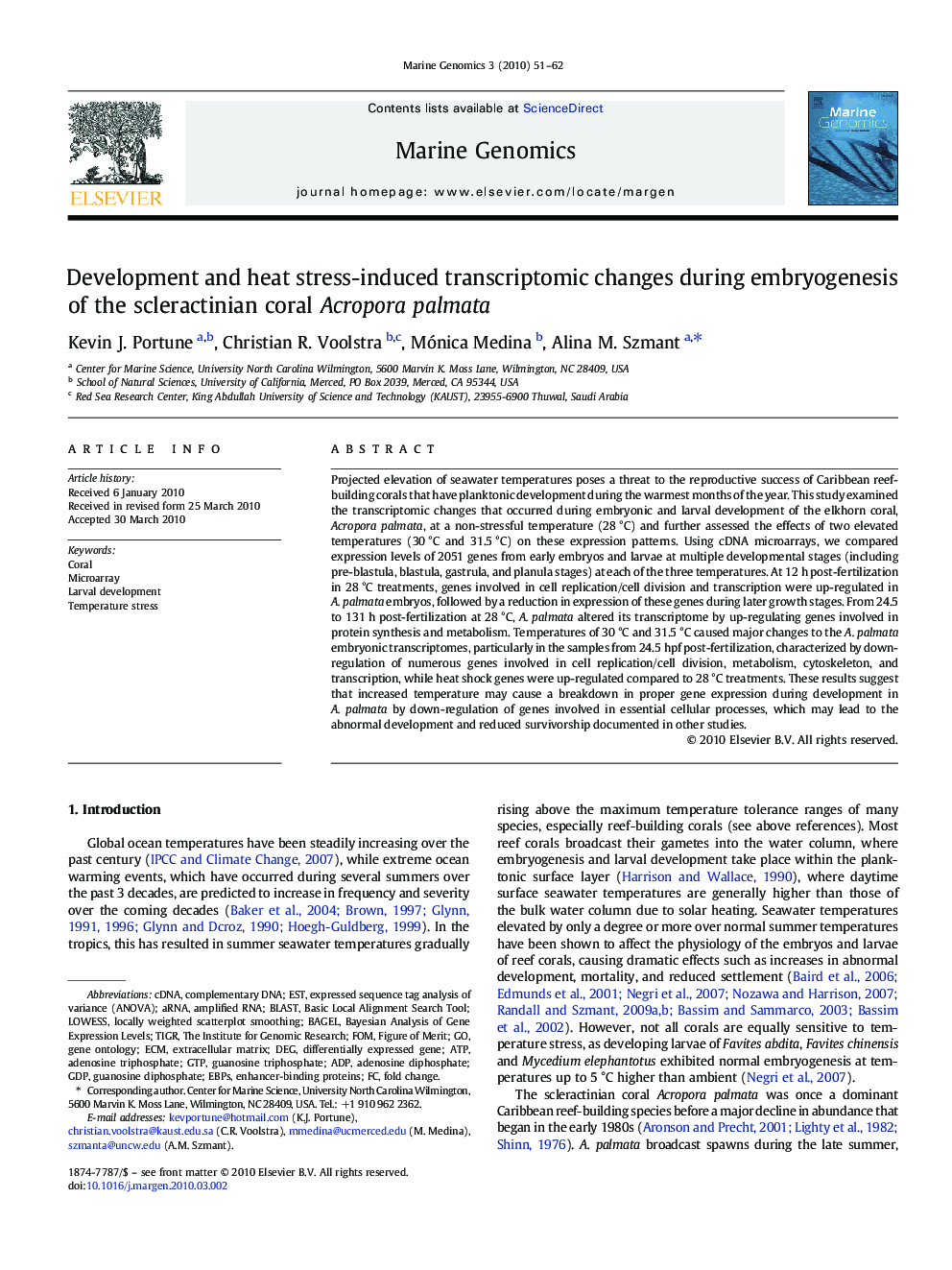| Article ID | Journal | Published Year | Pages | File Type |
|---|---|---|---|---|
| 2058395 | Marine Genomics | 2010 | 12 Pages |
Projected elevation of seawater temperatures poses a threat to the reproductive success of Caribbean reef-building corals that have planktonic development during the warmest months of the year. This study examined the transcriptomic changes that occurred during embryonic and larval development of the elkhorn coral, Acropora palmata, at a non-stressful temperature (28 °C) and further assessed the effects of two elevated temperatures (30 °C and 31.5 °C) on these expression patterns. Using cDNA microarrays, we compared expression levels of 2051 genes from early embryos and larvae at multiple developmental stages (including pre-blastula, blastula, gastrula, and planula stages) at each of the three temperatures. At 12 h post-fertilization in 28 °C treatments, genes involved in cell replication/cell division and transcription were up-regulated in A. palmata embryos, followed by a reduction in expression of these genes during later growth stages. From 24.5 to 131 h post-fertilization at 28 °C, A. palmata altered its transcriptome by up-regulating genes involved in protein synthesis and metabolism. Temperatures of 30 °C and 31.5 °C caused major changes to the A. palmata embryonic transcriptomes, particularly in the samples from 24.5 hpf post-fertilization, characterized by down-regulation of numerous genes involved in cell replication/cell division, metabolism, cytoskeleton, and transcription, while heat shock genes were up-regulated compared to 28 °C treatments. These results suggest that increased temperature may cause a breakdown in proper gene expression during development in A. palmata by down-regulation of genes involved in essential cellular processes, which may lead to the abnormal development and reduced survivorship documented in other studies.
